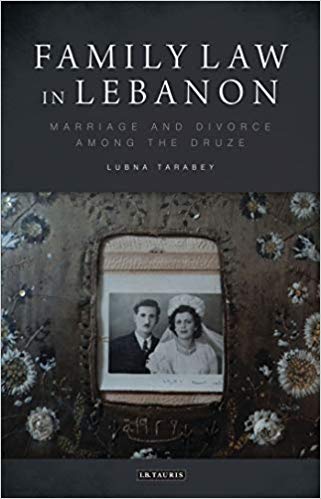Much of the life and ritual of the Druze in Lebanon appears mysterious to outsiders, as this esoteric sect remains closed to non-members. Lubna Tarabey, herself a member of this community, is ideally placed to offer insight into the family life, tradition and religious practices of the Druze. She looks back to the 1970s, and the start of a civil war that shattered Lebanon along confessional lines, to explore how the substantial social and political changes that have shaken the country have affected marriage and divorce practices. Family Law in Lebanon highlights the social ramficiations of this civil war, as Lebanese society divided according to sectarian affiliations, strengthening this facet of identity to the detriment of a wider 'Lebanese' identification. It was through this process that the internal cohesion and solidarity of a group such as the Druze became even more important. Thus, for generations, the Druze way of life was characterized by a high degree of 'traditional' practices and customs. Examining the development of attitudes towards marriage and divorce uncovers the extent to which these traditions are being developed, negotiated and even cast aside.
Through analysis of court records, Tarabey explores established and emerging patterns of marriage choices and grounds for divorce. She thus focuses on two interconnected trajectories: one that considers the changes in these overall family patterns and another that places these changes within the legal context in which they occur, focussing on the interplay between the social and the legal. It is through this that she highlights a complex web of change and continuity, of traditional values competing with enhanced individualism and personal freedoms.
چکیده فارسی
بسیاری از زندگی و مراسم دروزی در لبنان برای افراد خارجی مرموز به نظر می رسد، زیرا این فرقه باطنی به روی افراد غیرعضو بسته می ماند. لوبنا تارابی، که خود یکی از اعضای این جامعه است، در موقعیت ایده آلی قرار دارد تا بینشی از زندگی خانوادگی، سنت ها و اعمال مذهبی دروزی ها ارائه دهد. او به دهه 1970 و شروع یک جنگ داخلی که لبنان را در امتداد خطوط اعترافات متلاشی کرد، نگاه می کند تا بررسی کند که چگونه تغییرات اجتماعی و سیاسی اساسی که کشور را تکان داده است، روی ازدواج و طلاق تأثیر گذاشته است. قانون خانواده در لبنان پیامدهای اجتماعی این جنگ داخلی را برجسته می کند، زیرا جامعه لبنان بر اساس وابستگی های فرقه ای تقسیم شده است و این وجه هویت را به ضرر هویت "لبنانی" گسترده تر تقویت می کند. از طریق همین روند بود که انسجام و همبستگی درونی گروهی مانند دروزی ها اهمیت بیشتری پیدا کرد. بنابراین، برای نسلها، شیوه زندگی دروزیها با درجه بالایی از آداب و رسوم «سنتی» مشخص میشد. بررسی توسعه نگرش نسبت به ازدواج و طلاق نشان میدهد که این سنتها تا چه حد توسعه یافته، مذاکره و حتی کنار گذاشته شدهاند.
ترابی از طریق تجزیه و تحلیل سوابق دادگاه، الگوهای تثبیت شده و در حال ظهور انتخاب های ازدواج و زمینه های طلاق را بررسی می کند. بنابراین، او بر دو مسیر به هم پیوسته تمرکز میکند: یکی که تغییرات در این الگوهای کلی خانواده را در نظر میگیرد و دیگری که این تغییرات را در چارچوب قانونی که در آن رخ میدهند، قرار میدهد و بر تعامل بین امر اجتماعی و قانونی تمرکز میکند. از این طریق است که او شبکه پیچیده ای از تغییر و تداوم را برجسته می کند، از ارزش های سنتی که با فردگرایی و آزادی های شخصی افزایش یافته رقابت می کنند.
ادامه ...
بستن ...
Ebook details:
عنوان: Family Law in Lebanon: Marriage and Divorce among the Druze (Library of Modern Middle East Studies)
نویسنده: Lubna Tarabey
ناشر: I.B. Tauris (September 25, 2013)
زبان: English
شابک: 1780765622, 978-1780765624
حجم: 9 Mb
فرمت: True Pdf
ادامه ...
بستن ...










